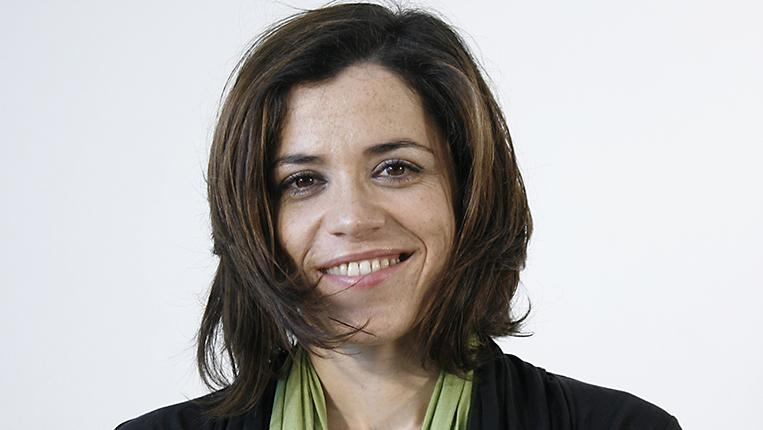The Faculty of Education and Psychology of the Universidade Católica Portuguesa (FEP-UCP) travelled to Cluj-Napoca, Romania, to take part in a Blended Intensive Programme (BIP) dedicated to the theme “Evidence-based Practices in Psychology and Educational Sciences: Social and Emotional Learning (SEL) for the 21st Century”. FEP-UCP had a strong presence in the programme, with the active participation of lecturers, researchers and students.
This BIP, organised under the Erasmus+ programme by Babeș-Bolyai University, combined intensive face-to-face learning activities with virtual collaborative sessions, bringing together participants from several European universities around a common goal: developing essential social and emotional competences – such as empathy and critical thinking – grounded in pedagogical practices supported by scientific evidence.
Opening conference and contributions from FEP-UCP
The programme, which ran from 12 to 16 May 2025, opened with a keynote lecture by Patrícia Oliveira-Silva, professor at FEP-UCP and director of the Human Neurobehavioral Laboratory (HNL). Her talk, titled “Neuroscience of Belonging: Using empathy and neuroscience to rethink international education”, invited participants to view international education as something deeply human.
“The central message I aimed to convey is that belonging is not a luxury – it is a fundamental human need. Neuroscience makes this very clear. The social pain we feel when we are excluded or ignored activates the same brain circuits as physical pain. It’s important to understand that this is not a metaphor, it’s real biology,” she explained.
That is precisely why empathy is so important. “When we design our classrooms and campuses with empathy in mind, we reduce the neurological weight of exclusion and students feel like they truly belong,” she added.
Promoting more inclusive educational environments
Later in the week, Filipa Sobral, lecturer at FEP-UCP and researcher at the Research Centre for Human Development (CEDH), together with Eva Dias-Oliveira, lecturer at Católica Porto Business School (CPBS), led a session entitled “SEL as a Foundation for Inclusive Environments”.
The session was divided into two complementary parts: a collaborative activity to identify challenging experiences in academic contexts, and an analysis based on the CASEL framework, focusing on the five SEL competencies (self-awareness, self-management, social awareness, relationship skills and responsible decision-making) across four implementation contexts: classroom, school, family, and community.
“It was extraordinary to witness the students’ enthusiasm and genuine engagement. The cultural and institutional diversity of the groups greatly enriched the discussions,” said Filipa Sobral.
“Through collaborative activities, participants demonstrated not only a deep understanding of social and emotional competences, but also how these can truly transform academic environments – making them more inclusive, empathetic, and welcoming,” she concluded.
Critical thinking and empathy at the centre of HNL workshop
One of the highlights of the week was the session “Why Critical Thinking & Empathy Matter: Fostering Social Emotional Skills in Psychology Service Learning”, delivered by Ana Moreno and Pedro Ribeiro, researchers at the HNL, with support from Marco Valério, an international intern from LUMSA – Libera Università Maria Ss. Assunta, Italy.
“This workshop was living proof of how fruitful interdisciplinary and international collaboration can be,” emphasised Ana Moreno. “Together with our colleague Marco, we developed a practical experience that challenged participants to rethink their role and impact in the communities they serve.”
Pedro Ribeiro noted the success of the session: “We managed to offer participants not only the chance to apply the knowledge gained, but also a valuable reference point for future project development.”
Ana Moreno reinforced the importance of social and emotional skills in the profession: “Presence, active listening, empathy and critical analysis are essential foundations. Psychologists in the 21st century must go beyond knowing what to do — they must understand why and for whom their work is intended.”
A transformative experience: student perspectives
FEP-UCP students who took part in the BIP highlighted the profound impact of the experience.
Beatriz Pratas described the week in Cluj-Napoca as “one of the most enriching”, emphasising that the international setting helped expand “our knowledge in psychology” and develop “soft skills such as autonomy and relationship-building with peers from different nationalities.”
For Daniela Jara, the programme enabled her to “meet peers from diverse national and cultural backgrounds, promoting enriching intercultural exchange and offering new perspectives on the world.” She concluded: “Without a doubt, I return to Portugal with a wealth of new learning, new friendships, and strong motivation to apply all that I’ve learned to my future professional life.”
Carlota Lobo shared a similar perspective, highlighting the value of “engaging with students and lecturers from different countries, which allowed for a genuine exchange of ideas and cultures”, as well as “the balance between team-based practical work and well-structured theoretical sessions.”
She also praised the cultural aspect of the experience: “Having the opportunity to explore Romanian culture and history made the experience even more complete. I would highly recommend this type of programme to any student who wants to step out of their comfort zone and grow in multiple dimensions.”
Internationalisation as a transformative educational commitment
Participation in the BIP reinforces FEP-UCP’s positioning as an institution committed to a rigorous, global, and human-centred education. Through international mobility and dialogue between institutions, disciplines and cultures, students not only strengthen technical skills, but also develop a broader and more integrated understanding of their professional role.
Ana Moreno left a message for students considering future BIP editions: “Say ‘yes’ to new ideas, learning and experiences. Programmes like the BIP are a gateway to expand your academic journey, but more than that, they open the door to personal growth and the creation of connections that transcend borders.”
Pedro Ribeiro concluded: “It’s worth it. It’s a great opportunity to learn and apply new knowledge, to make friends, grow your professional network, explore new cultures, and gain independence.”








